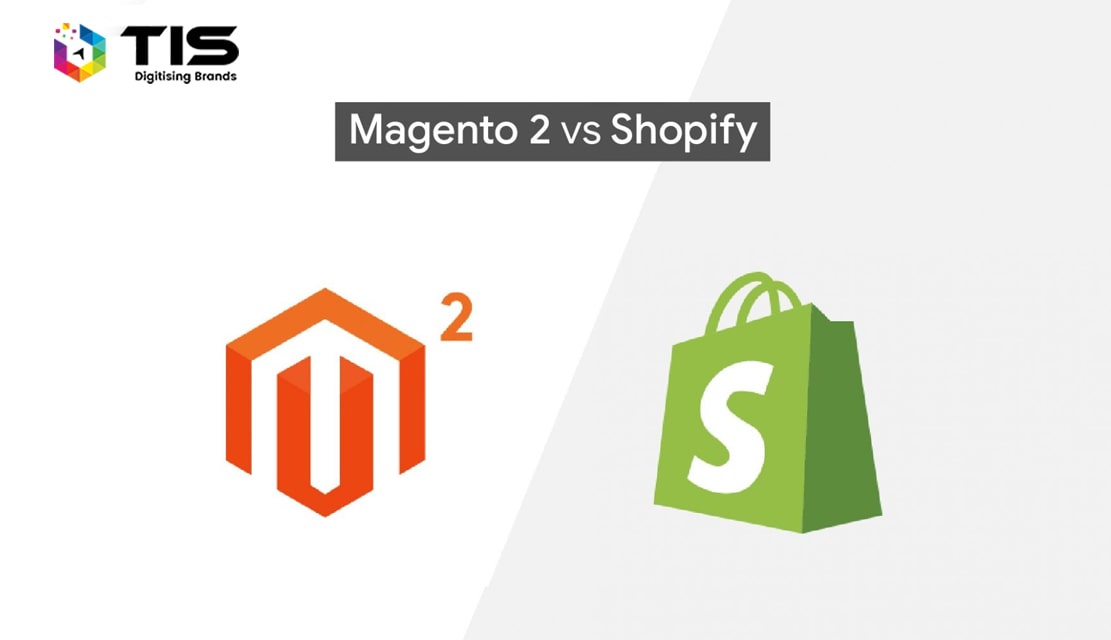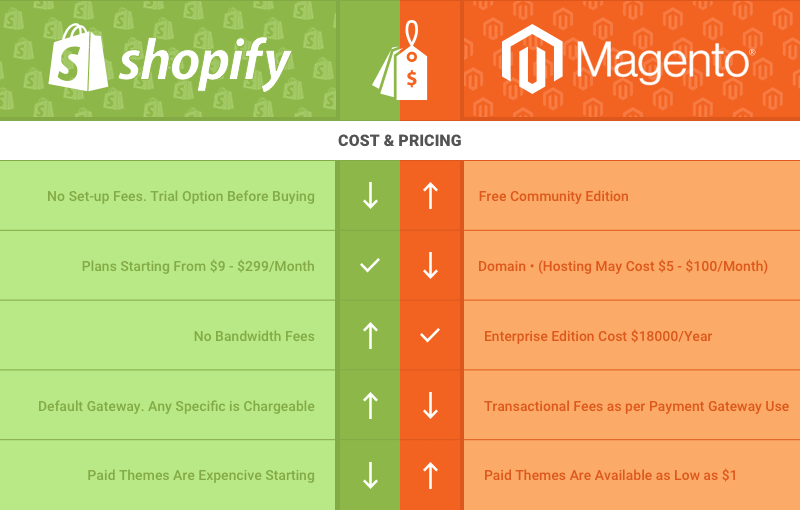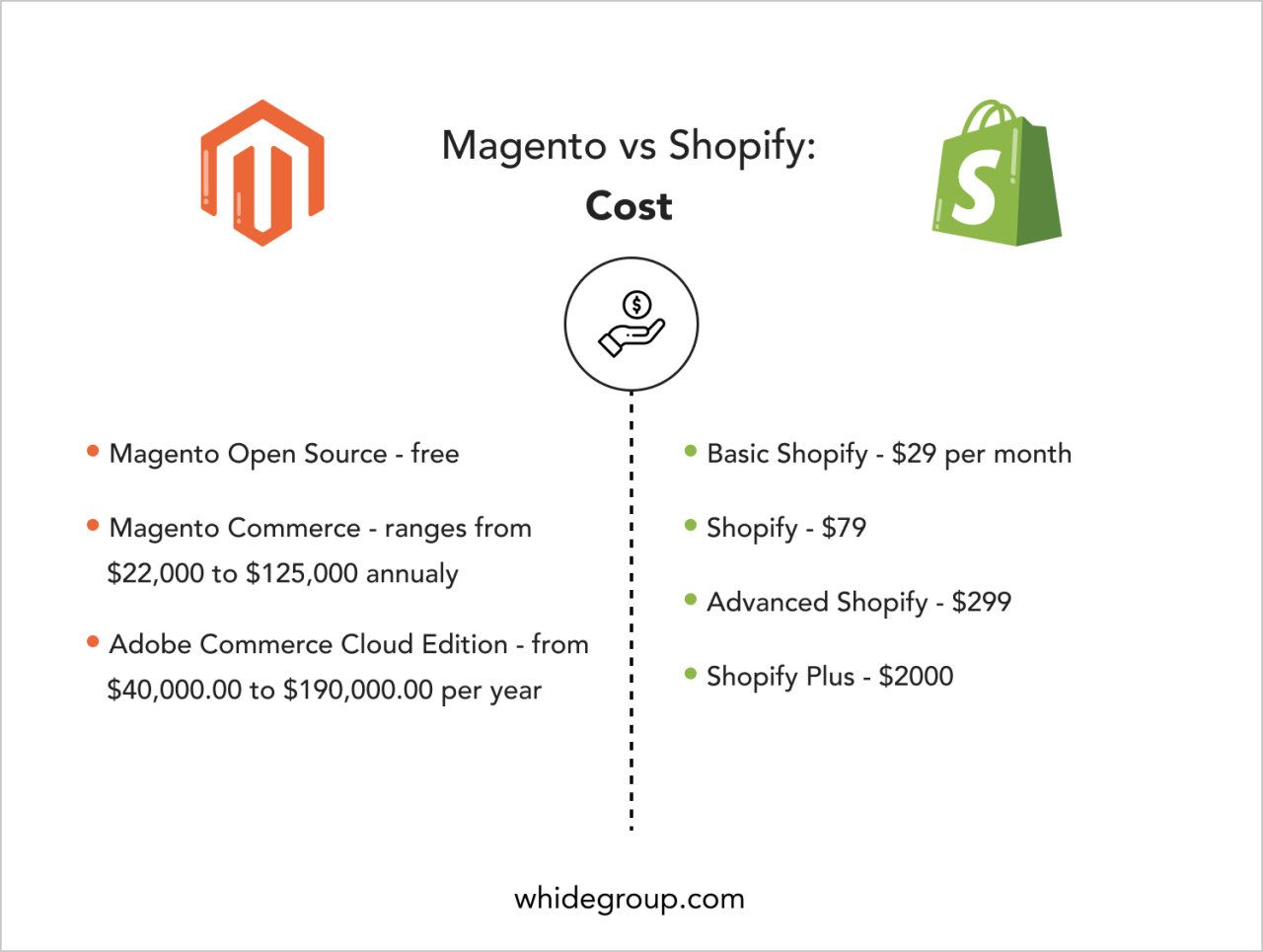Magento 2 vs Shopify: Which Platform Wins for Custom Development?

Magento 2 vs Shopify: Which Platform Wins for Custom Development? sets the stage for this enthralling narrative, offering readers a glimpse into a story that is rich in detail with casual formal language style and brimming with originality from the outset.
In the competitive realm of eCommerce platforms, Magento 2 and Shopify stand out as key players, each with its strengths and unique features. This comparison aims to delve into the nuances of custom development on these platforms, shedding light on the factors that set them apart and the implications for businesses seeking tailored solutions.
Magento 2 vs Shopify

Magento 2 and Shopify are two popular e-commerce platforms that cater to businesses looking to set up online stores. Each platform has its own unique features and target audience, making them suitable for different types of businesses.
Overview of Magento 2 and Shopify
Magento 2 is an open-source e-commerce platform known for its flexibility and scalability. It is favored by larger businesses that require extensive customization options and have the resources to manage a more complex system. On the other hand, Shopify is a user-friendly, hosted solution that is popular among smaller businesses and entrepreneurs looking for a simple setup process and robust features out of the box.
Key Differences in Target Audience
- Magento 2: Targets larger businesses with complex e-commerce needs, including scalability, customization, and advanced features.
- Shopify: Targets smaller businesses and entrepreneurs seeking an easy-to-use platform with a quick setup process and a range of built-in features.
Market Share and Popularity
Magento 2 has a strong presence in the market, especially among larger businesses that require extensive customization and scalability. Shopify, on the other hand, has gained popularity among smaller businesses and startups due to its user-friendly interface and quick setup process.
While Magento 2 may have a smaller market share compared to Shopify, it remains a top choice for businesses with specific customization requirements.
Custom Development Capabilities

When it comes to custom development capabilities, both Magento 2 and Shopify offer a range of options for developers to create unique and tailored solutions for online stores. Let's explore the customization options available on each platform and compare the ease of implementation.
Customization Options on Magento 2
Magento 2 is known for its robust customization options, making it a popular choice for developers looking to build complex and highly customized online stores. Some key features include:
- Extensive extension marketplace with a wide range of plugins and extensions for added functionality.
- Highly flexible architecture that allows for deep customization of design and functionality.
- Ability to create custom themes and templates to match specific brand requirements.
- Support for advanced features like multi-store capabilities and complex product configurations.
Flexibility in Design and Functionality on Shopify
Shopify, on the other hand, is known for its user-friendly interface and ease of use. While it may not offer the same level of customization as Magento 2, Shopify provides developers with the following flexibility:
- Access to a wide range of themes and templates that can be easily customized through the Shopify theme editor.
- Ability to add custom code and scripts to modify the design and functionality of the online store.
- Support for app integrations to enhance the store's capabilities with additional features.
Ease of Implementing Custom Features
When it comes to implementing custom features, Magento 2 offers developers more control and flexibility due to its open-source nature and extensive customization options. Developers can tailor every aspect of the online store to meet specific requirements, but this level of customization may require more technical expertise and development time.On the other hand, Shopify provides a more streamlined approach to custom development with its user-friendly interface and simpler customization tools.
While Shopify may not offer the same level of complexity as Magento 2, it allows developers to quickly implement custom features without delving into intricate coding.In conclusion, Magento 2 is better suited for developers looking to create highly customized and complex online stores, while Shopify offers a more straightforward approach for those who prioritize ease of use and quick implementation of custom features.
Scalability and Performance
When it comes to custom development projects, scalability and performance are crucial factors to consider. Let's delve into how Magento 2 and Shopify address these aspects.
Magento 2 Scalability Features
Magento 2 is known for its robust scalability features, making it a popular choice for large and complex custom development projects. Some key scalability features of Magento 2 include:
- Ability to handle high traffic volumes without compromising performance.
- Scalable architecture that allows for easy expansion and customization.
- Support for multiple stores, languages, and currencies.
Shopify Scalability Solutions
Shopify also offers scalability solutions for custom development projects, catering to businesses of all sizes. Here are some ways Shopify caters to scalability needs:
- Cloud-based hosting that can handle sudden spikes in traffic.
- App ecosystem for adding custom features and functionalities as your business grows.
- Automatic updates and maintenance to ensure optimal performance at all times.
Performance Benchmarks: Magento 2 vs. Shopify
When it comes to performance benchmarks in handling custom development tasks, both Magento 2 and Shopify have their strengths. Here's a comparison of their performance capabilities:
| Platform | Page Load Speed | Server Response Time |
|---|---|---|
| Magento 2 | Fast load times due to optimized code and caching mechanisms. | Quick server response time, especially with proper hosting configuration. |
| Shopify | Consistent page load speed across different themes and plugins. | Reliable server response time, supported by Shopify's infrastructure. |
Cost of Custom Development

When it comes to custom development, the cost implications play a crucial role in decision-making for businesses. Let's take a closer look at how Magento 2 and Shopify stack up in terms of cost.
Cost Factors in Custom Development on Magento 2
- Magento 2 is an open-source platform, which means the software itself is free to use. However, custom development on Magento 2 can be costly due to the need for skilled developers and extensive customization requirements.
- Factors that contribute to the cost of custom development on Magento 2 include the complexity of the project, the number of custom features needed, and ongoing maintenance expenses.
- Businesses may also incur costs for extensions, themes, hosting, and other add-ons to enhance the functionality of their Magento 2 store.
Pricing Structure for Custom Development on Shopify
- Shopify, on the other hand, is a hosted platform with a subscription-based pricing model. Businesses can choose from different pricing plans based on their needs, with additional costs for custom development services.
- Custom development on Shopify typically involves hiring Shopify experts or developers to create custom themes, apps, or integrations to meet specific business requirements.
- Businesses may also need to budget for ongoing support, app fees, and other expenses related to custom development on the Shopify platform.
Overall Cost Implications of Custom Development Projects
- When comparing the overall cost implications of custom development projects between Magento 2 and Shopify, businesses need to consider the initial investment, ongoing maintenance costs, and scalability options.
- Magento 2 may have higher upfront costs for custom development due to the need for skilled developers and customization requirements, but it offers more flexibility and scalability for complex projects.
- Shopify, with its subscription-based pricing model, may be more cost-effective for small to medium-sized businesses looking for a simpler and more user-friendly e-commerce solution, but it may have limitations in terms of customization and scalability.
Closure
As we conclude this exploration of Magento 2 vs Shopify for custom development, it becomes evident that each platform offers distinct advantages depending on the specific needs of a project. Whether it's Magento 2's robust customization options or Shopify's user-friendly interface, businesses have a wealth of choices to consider.
Ultimately, the decision between the two boils down to a careful evaluation of requirements and objectives, ensuring that the chosen platform aligns seamlessly with the development goals at hand.
Essential Questionnaire
What are the key differences in the target audience for Magento 2 and Shopify?
Magento 2 typically caters to larger businesses with complex needs, while Shopify is more user-friendly and suitable for smaller enterprises or startups.
How does Magento 2 compare to Shopify in terms of scalability features for custom development projects?
Magento 2 offers extensive scalability features that allow for robust customization, making it ideal for large-scale projects. Shopify, while less customizable, provides scalability solutions that are easier to implement for smaller businesses.
What are the cost implications of custom development projects between Magento 2 and Shopify?
Custom development on Magento 2 can be more expensive due to its advanced features and flexibility. Shopify, on the other hand, offers a more cost-effective solution for businesses with simpler customization needs.

